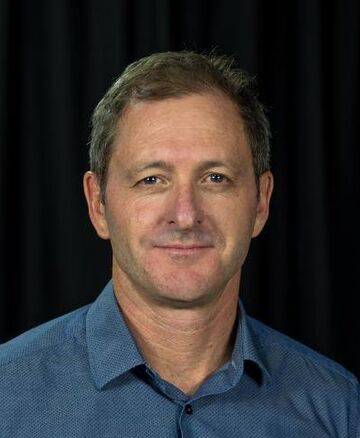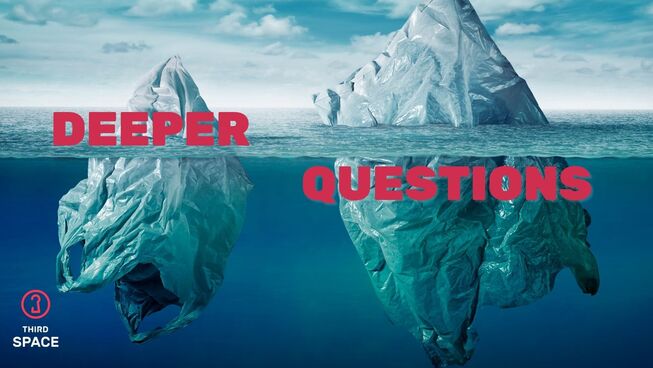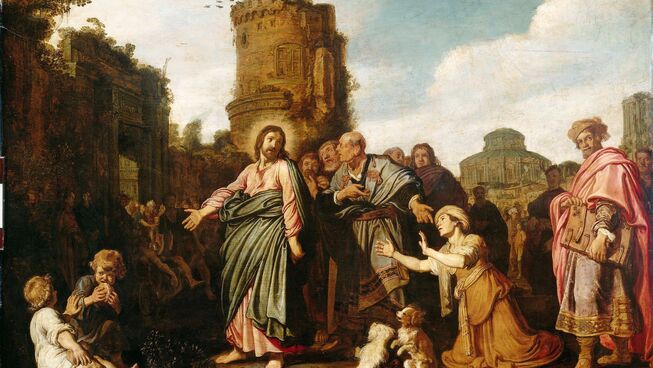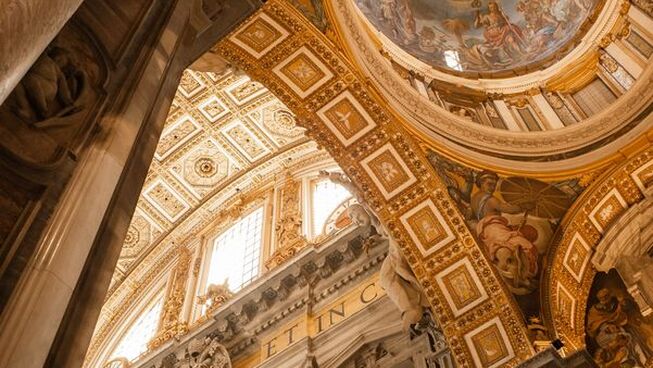Ep 115: How is the church better and worse than you imagined?
Christian history offers plenty of ammunition to its critics: Crusades, inquisitions, witch trials, the oppression of women.
For the Love of God: How the church is better and worse than you ever imagined is a documentary by the Centre for Public Christianity. It addresses the worst of what Christians have done, but also traces the origins of Western values like human rights, charity, humility, and non-violence back to the influence of Jesus.
This is not the history we think we know.
This episode of Bigger Questions was recorded as a bonus episode after a screening of the cinema version of the documentary. Hence many of the questions revolved around questions raised by the documentary.
The guests:
John Dickson has a degree in theology and a doctorate in ancient history, specialising in the birth of Christianity. He’s founding director of the Centre for Public Christianity, a Senior Research Fellow of the Department of Ancient History at Macquarie University, an Anglican minister, and author of over a dozen books. You can find out more about John on his website.
Simon Smart is Executive Director of the Centre for Public Christianity. He has a Masters in Christian Studies, is a prolific writer and contributed to the book For God's Sake: An Atheist, a Jew, a Christian and a Muslim Debate Religion.
Help us keep asking Bigger Questions. Support the show for as little as US$1 per podcast on Patreon.
Bigger questions asked in the conversation
Well, John and Simon thanks for taking some time to chat now about this documentary.
Now we’ve just seen a full length cinema screening of For the Love of God: how the church is better and worse than you ever imagined, it’s been described as an unflinching documentary, and the film does raise lots of big questions.
But before we get to discuss some of these - let’s talk a bit about the film itself. So Simon what inspired the making of the film? Were you looking for an excuse to travel to exotic locations around the world?
Congratulations on the documentary. It’s been really well produced, with some world experts. Tell us a bit about the making of the film. Was there anywhere that was particularly difficult or challenging to film?
Where was your favourite location for the filming?
What was your favourite story for the filming?
So why the name of the film: for the love of God? Why did you choose that?
So why the tagline? ‘How the church is better and worse than you imagined’ Why did you include the bad parts of what the church has done?
How did you choose what you chose to tell? There’s lots of potential stories of how the church is better or worse, why did you choose certain stories and not others?
The tune of Christianity - love enemies
A key theme of the film is what you describe as the tune of Jesus, which comes from the Gospel of Luke,
Love your enemies, do good to those who hate you
Why do you suggest that this in particular is the tune of Jesus and not some of his other teachings? Have you just cherry picked something from what he said to make Jesus sound radical and appealing?
But Jesus wasn’t the first to teach love enemies - didn’t other ancient teachers say similar things? For example a pagan Babylonian text predating Christ by more than 1000 years said,
“Do not return evil to your adversary; Requite with kindness the one who does evil to you, Maintain justice for your enemy, Be friendly to your enemy.”
So John, how was Jesus different?
Jesus myth
Rugby Union footballer Israel Folau recently tweeted: Jesus Christ is and will always be the most important thing to me above anything else in this world
One person responded briefly by saying: Shame he’s fictitious
Now this comment got 76 likes.
So John it’s all well and good to say that Jesus has a beautiful tune, but it’s becoming quite common for people to say that Jesus was just a myth, a work of fiction. So with Jesus, are we just dealing with a fictitious character or is the composer of this beautiful tune real?
Does it matter if he wasn’t real?
The Big Question
So John and Simon, wrapping up, final summary thoughts, how is the church better and worse than you ever imagined?









